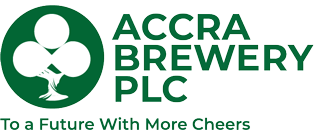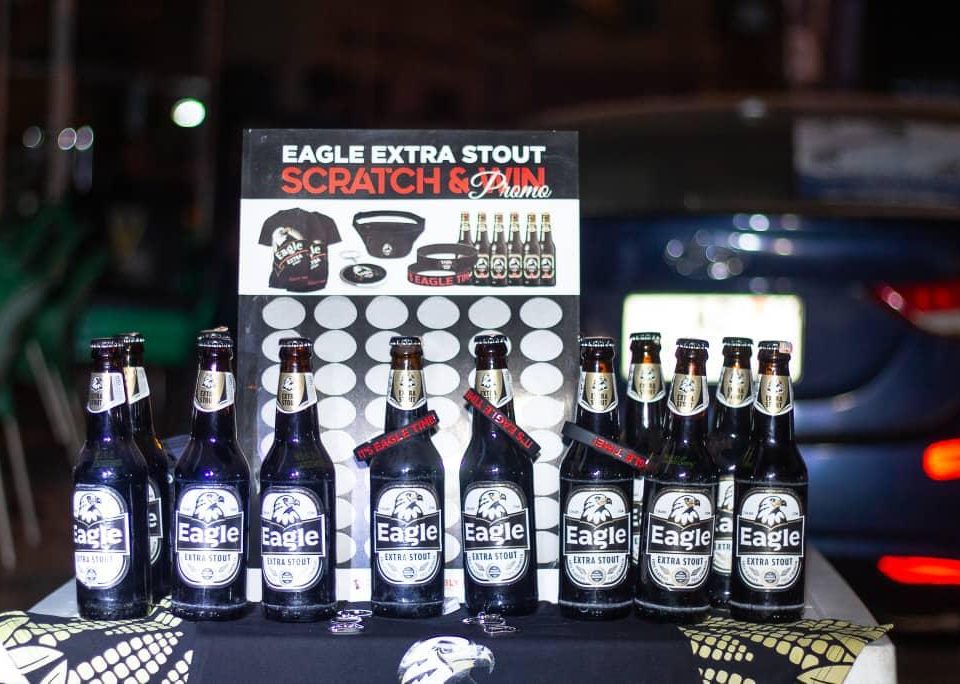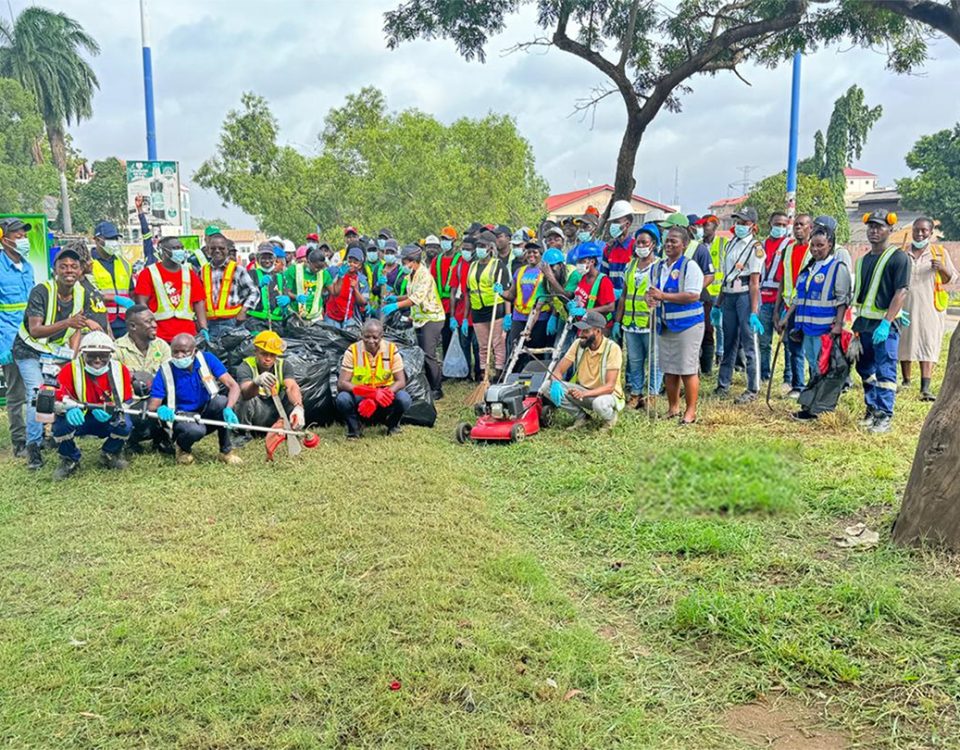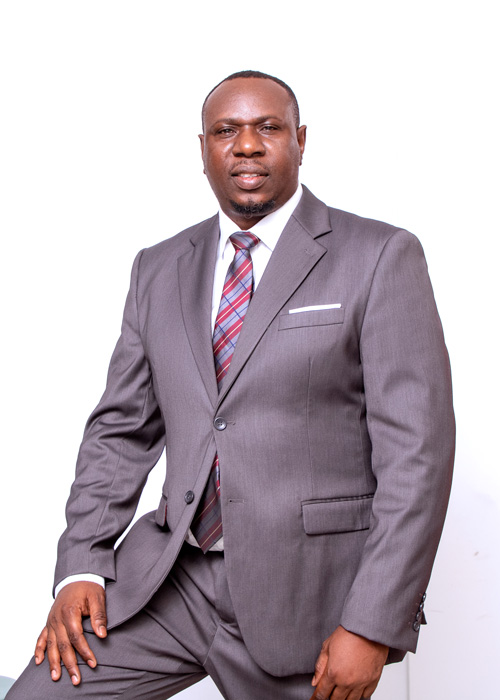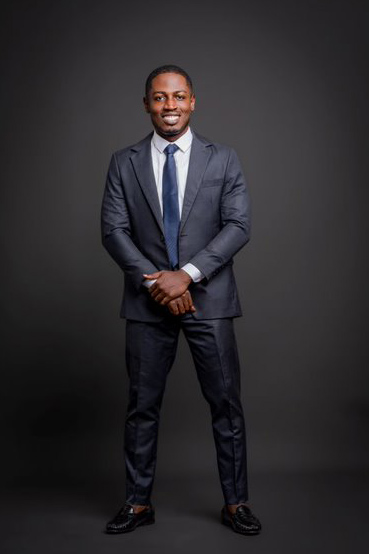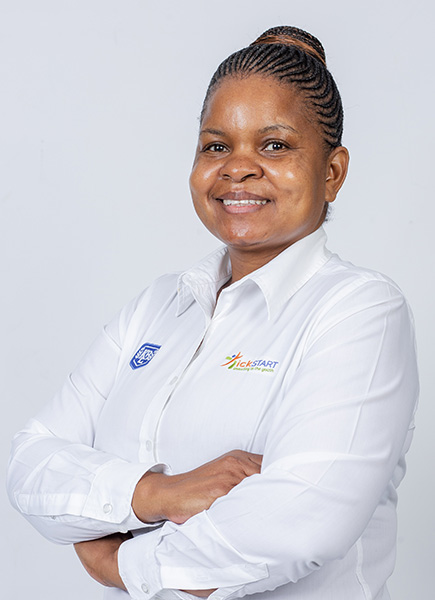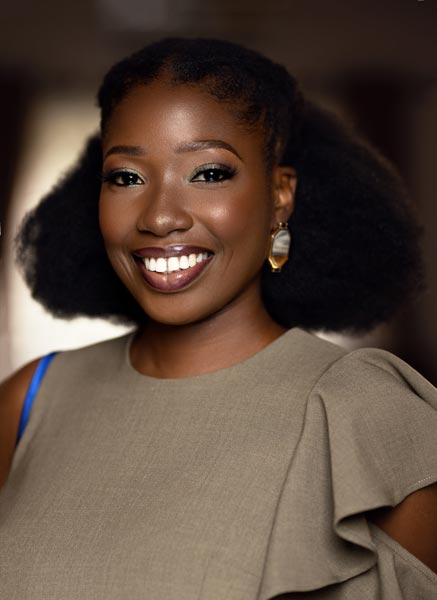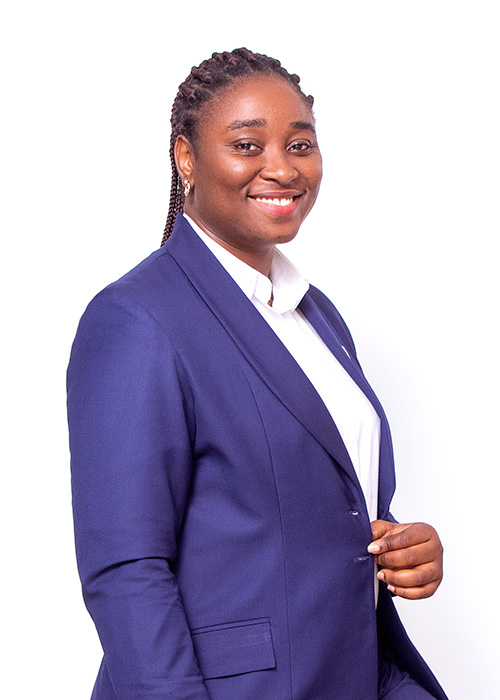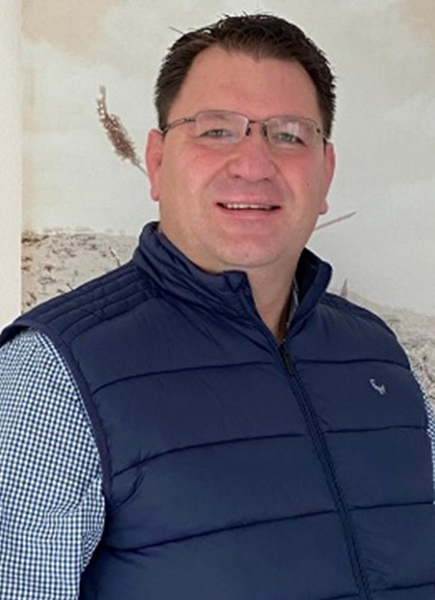At Accra Brewery, we believe in the power of collaboration and inclusion. We recognize that everyone has the potential to achieve their dreams, regardless of their gender. That's why we're thrilled to introduce our female forklift operators. We hope to inspire others to pursue their passions and break down gender stereotypes at the workplace.
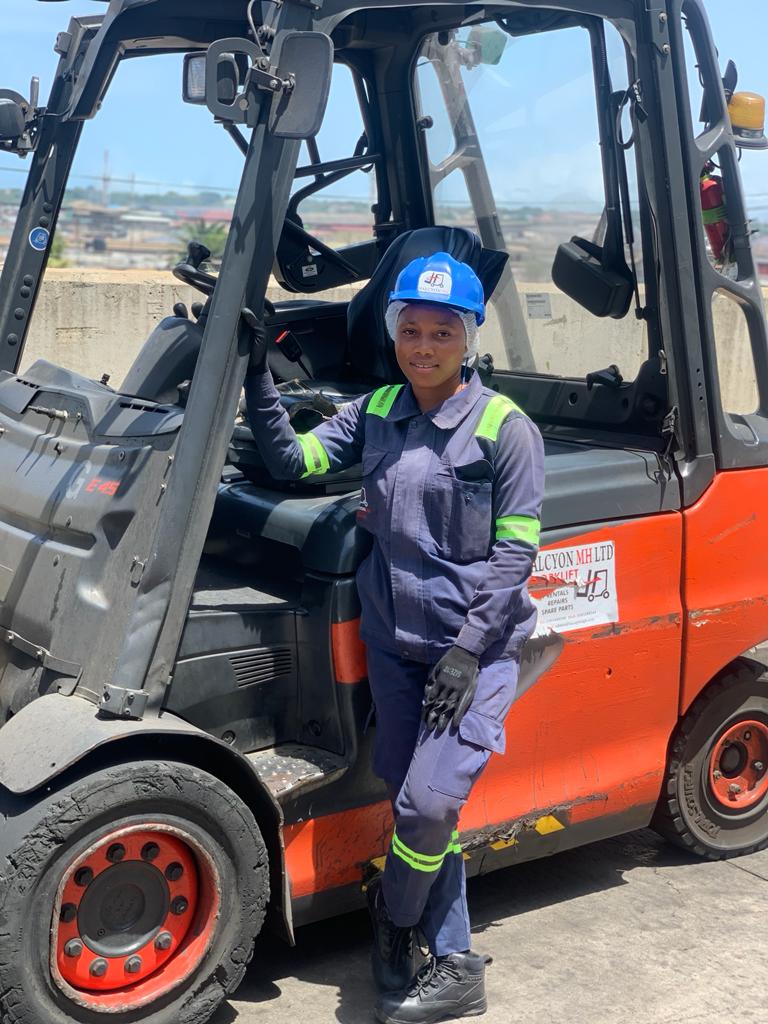
Lydia Opoku Nyarko
My career goal is to be a heavy-duty machine operator. I want to assure women who wish to pursue careers in fields where men dominate that we can accomplish whatever we desire. We distinguish ourselves from other applicants on the job market not because of our gender but because of our credentials, expertise, and experience.
Interviewer: What is your name and your current role at Accra Brewery?
Lydia: I am Lydia Opoku Nyarko, and I work as a forklift operator.
Interviewer: What was/is your dream job, and did you always want to be a forklift operator?
Lydia: My dream job is to become a heavy-duty machine operator.
Interviewer: What motivated you to become a forklift operator? And how did you learn how to drive a forklift?
Lydia: I chanced upon a documentary of a lady operating a forklift and I developed the interest from that day. I was convinced that operating a heavy-duty machine was what I was meant to do, so I attended forklift operating school to gain more insight and make my dreams come through.
Interviewer: How many years have you been operating forklifts and what types of forklifts have you operated before?
Lydia: I have been operating since 2022 and I have operated the Fuel machines, electric and Gas, machines.
Interviewer: What do you like most about being a forklift operator?
Lydia: Safety forklift operation and warehouse inventory Loading and unloading. security loads for tricks, checking and maintaining the equipment—literally everything. I like working as a forklift operator, especially at ABL, where there is great teamwork, which creates a great working environment for all.
Interviewer: What are some common misconceptions about female forklift operators?
Lydia: There is a misconception that female forklift operators have difficulties with childbirth. This is wrong; I know female forklift operators who have kids.
Interviewer: Thank you so much Lydia for your time. I have one last question for you. What advice would you give to women who are interested in becoming forklift operators?
Lydia: It is my pleasure. I want to assure women who wish to pursue careers in fields where men dominate that we can accomplish whatever we desire. We distinguish ourselves from other applicants on the job market not because of our gender but because of our credentials, expertise, and experience.
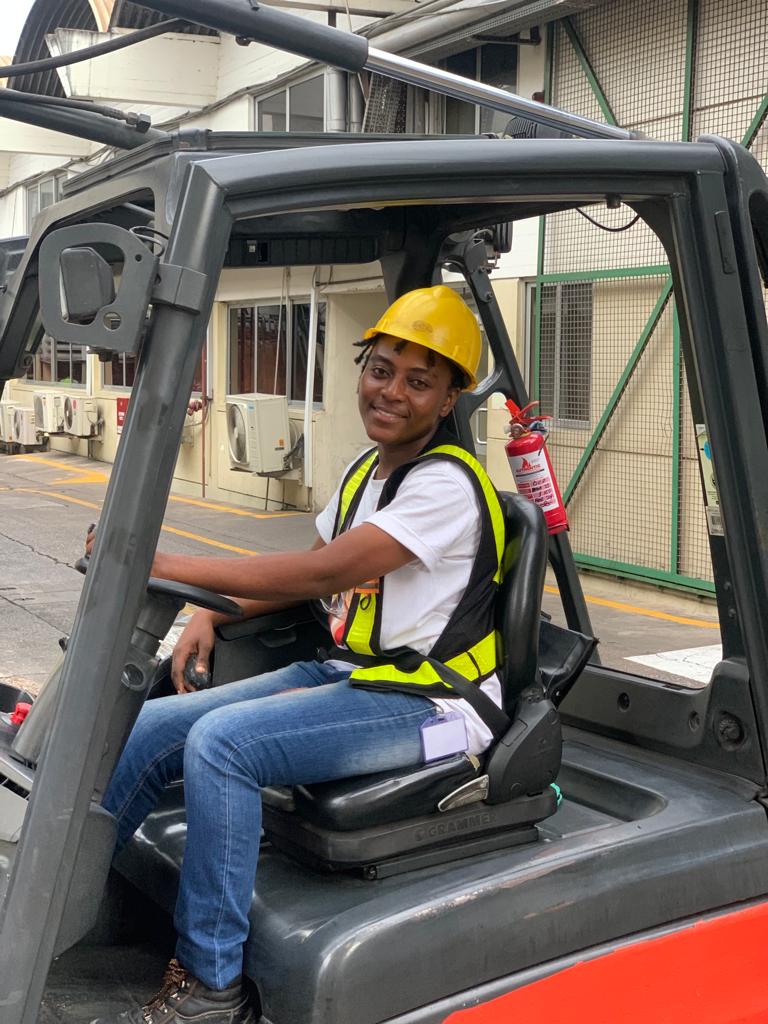
Augustina Majitey Gaisie
I began working as a forklift operator with a Toyota 2.5 tons LPG, then moved on to a Linde 4.5 tons electric, and finally a Linde 3.5 tons. I was able to overcome my fears and participate in a male-dominated job.
Interviewer: What is your name and your current role at Accra Brewery?
Augustina: My name is Augustina Majitey Gaisie, I am a forklift operator.
Interviewer: What was/is your dream job, and did you always want to be a forklift operator?
Augustina: Growing up I wanted to be a footballer or an athlete, I never thought of becoming a forklift operator.
Interviewer: What motivated you to become a forklift operator? And how did you learn how to drive a forklift?
Augustina: Women in male-dormant jobs have always been an inspiration to me. I enrolled in an institution to be trained as a forklift operator.
Interviewer: How many years have you been operating forklifts and what types of forklifts have you operated before?
Augustina: It has been a year since I started operating forklift. I began with a Toyota 2.5 tons LPG, then moved on to a Linde 4.5 tons electric, and finally a Linde 3.5 tons.
Interviewer: What kind of training did you receive to become a forklift operator?
Augustina: Forklift Operator's Safety Training
Interviewer: What do you like most about being a forklift operator?
Augustina: the fact that it helped me to overcome my fears and participate in a male-dominated job.
Interviewer: What are some common misconceptions about female forklift operators?
Augustina: Some people believe that women who operate forklifts are feminists and contemptuous of men because they do not understand why women should perform tasks that are intended for men.
Interviewer: What advice would you give to women who are interested in becoming forklift operators?
Augustina: I would advise any female forklift operators to never give up on their goals and to not let other people or potential obstacles frighten them. Challenges should be used as motivation rather than a justification for giving up.
Interviewer: Thank you for your time, Augustina, and I am sure you can still dive into sports.
Augustina: You are welcome, sure I will thank you.
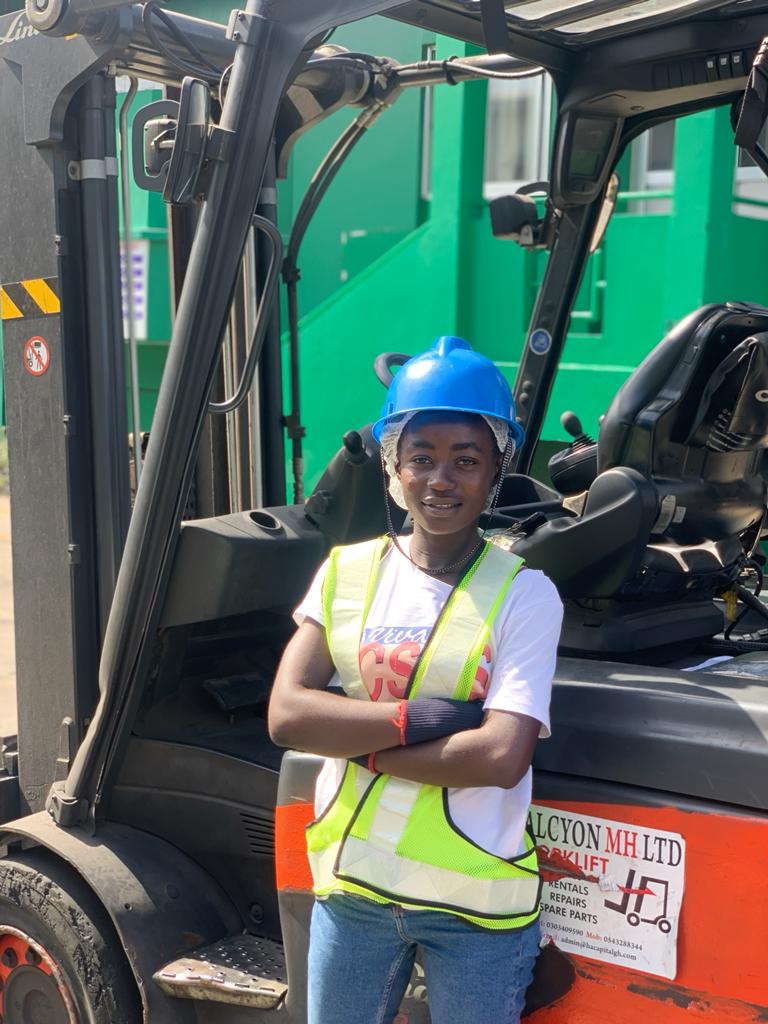
Anabella Owusu
I have always wanted to be a forklift operator. I attended a forklift training school to learn how to operate the machine, and I have always seen the profession as awesome!
Interviewer: What is your name and your current role at Accra Brewery?
Anabella: I am Anabella Owusu, and I am a Forklift operator
Interviewer: What was/is your dream job, and did you always want to be a forklift operator?
Anabella: I have always wanted to be a forklift operator.
Interviewer: What motivated you to become a forklift operator? And how did you learn how to drive a forklift?
Anabella: I attended a forklift training school to learn how to operate the machine, and I have always seen the profession as awesome!
Interviewer: How many years have you been operating forklifts and what types of forklifts have you operated before?
Anabella: I have worked for Three (3) months, and I have operated two types which is Diesel and Electric forklift.
Interviewer: What kind of training did you receive to become a forklift operator?
Anabella: The teachings I received at the school covered my duties as an operator, forklift safety instruction, and a thorough knowledge of the many components that keep the forklift operating.
Interviewer: What do you like most about being a forklift operator?
Anabella: Operating the machine on my own makes me proud of myself.
Interviewer: What are some common misconceptions about female forklift operators?
Anabella: some common misconceptions are inability to give birth, and waist problems.
Interviewer: What advice would you give to women who are interested in becoming forklift operators?
Anabella: I will encourage everyone who desires to operate a forklift to go for it because it is exciting.
Interviewer: Thank you Anabella.
Anabella: Thank you too for the interview.

Naomi Amae
I became interested in forklifting while working as a factory cleaner. I had no doubts about my abilities after watching the men using these devices. After that, I started looking into forklift training programmes and applied. I have been operating forklifts for five years.
Interviewer: What is your name and your current role at Accra Brewery?
Naomi: I am Naomi, and I am a Forklift operator
Interviewer: What was/is your dream job, and did you always want to be a forklift operator?
Naomi: No, I wanted to be a nurse.
Interviewer: What motivated you to become a forklift operator? & How did you learn how to drive a forklift?
Naomi: I became interested in forklifting while working as a factory cleaner. I had no doubts about my abilities after watching the men using these devices. After that, I started looking into forklift training programmes and applied.
Interviewer: How many years have you been operating forklifts?
Naomi: I have been operating forklifts for five years.
Interviewer: What kind of training did you receive to become a forklift operator?
Naomi: Safety tips on how to operate a forklift, the dos and don’ts, among others
Interviewer: What do you like most about being a forklift operator?
Naomi: I feel special because not a lot of women are forklift operators, and I am good at it.
Interviewer: What are some common misconceptions about female forklift operators?
Naomi: Some people are of the belief that because of the position of the engine, as a female, it affects your menstrual cycle and makes it difficult to get pregnant, which is not true because I am a forklift operator and a proud mother.
Interviewer: What advice would you give to women who are interested in becoming forklift operators?
Naomi: They should take out the fear; they can do it; all it takes is determination and hard work.
Interviewer: Thank you Naomi for sharing with us.
Naomi: Anytime!
